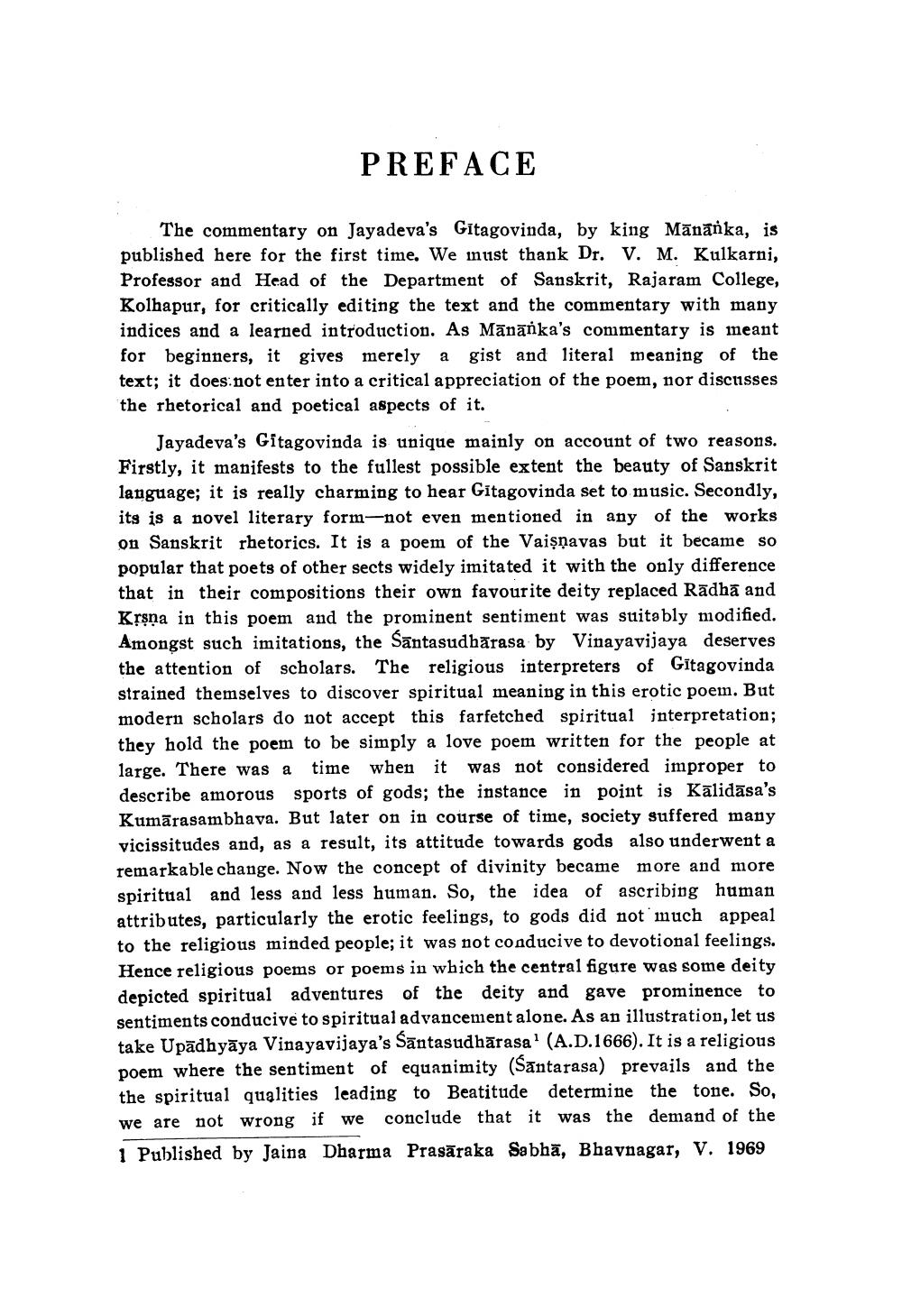Book Title: Gitagovinda Kavyam Author(s): Jayadeva, King Manaka, V M Kulkarni Publisher: L D Indology Ahmedabad View full book textPage 7
________________ PREFACE The commentary on Jayadeva's Gitagovinda, by king Mananka, is published here for the first time. We must thank Dr. V. M. Kulkarni, Professor and Head of the Department of Sanskrit, Rajaram College, Kolhapur, for critically editing the text and the commentary with many indices and a learned introduction. As Mananka's commentary is meant for beginners, it gives merely a gist and literal meaning of the text; it does not enter into a critical appreciation of the poem, nor discusses the rhetorical and poetical aspects of it. Jayadeva's Gitagovinda is unique mainly on account of two reasons. Firstly, it manifests to the fullest possible extent the beauty of Sanskrit language; it is really charming to hear Gitagovinda set to music. Secondly, its is a novel literary form-not even mentioned in any of the works on Sanskrit rhetorics. It is a poem of the Vaisnavas but it became so popular that poets of other sects widely imitated it with the only difference that in their compositions their own favourite deity replaced Radha and Krsna in this poem and the prominent sentiment was suitably modified. Amongst such imitations, the Santasudharasa by Vinayavijaya deserves the attention of scholars. The religious interpreters of Gitagovinda strained themselves to discover spiritual meaning in this erotic poem. But modern scholars do not accept this farfetched spiritual interpretation; they hold the poem to be simply a love poem written for the people at large. There was a time when it was not considered improper to describe amorous sports of gods; the instance in point is Kalidasa's Kumarasambhava. But later on in course of time, society suffered many vicissitudes and, as a result, its attitude towards gods also underwent a remarkable change. Now the concept of divinity became more and more spiritual and less and less human. So, the idea of ascribing human attributes, particularly the erotic feelings, to gods did not much appeal to the religious minded people; it was not conducive to devotional feelings. Hence religious poems or poems in which the central figure was some deity depicted spiritual adventures of the deity and gave prominence to sentiments conducive to spiritual advancement alone. As an illustration, let us take Upadhyaya Vinayavijaya's Santasudharasa' (A.D.1666). It is a religious poem where the sentiment of equanimity (Santarasa) prevails and the the spiritual qualities leading to Beatitude determine the tone. So, we are not wrong if we conclude that it was the demand of the 1 Published by Jaina Dharma Prasaraka Sabha, Bhavnagar, V. 1969Page Navigation
1 ... 5 6 7 8 9 10 11 12 13 14 15 16 17 18 19 20 21 22 23 24 25 26 27 28 29 30 31 32 33 34 35 36 37 38 39 40 41 42 43 44 45 46 47 48 49 50 51 52 53 54 55 56 57 58 59 60 61 62 63 64 65 66 67 68 69 70 71 72 ... 162
